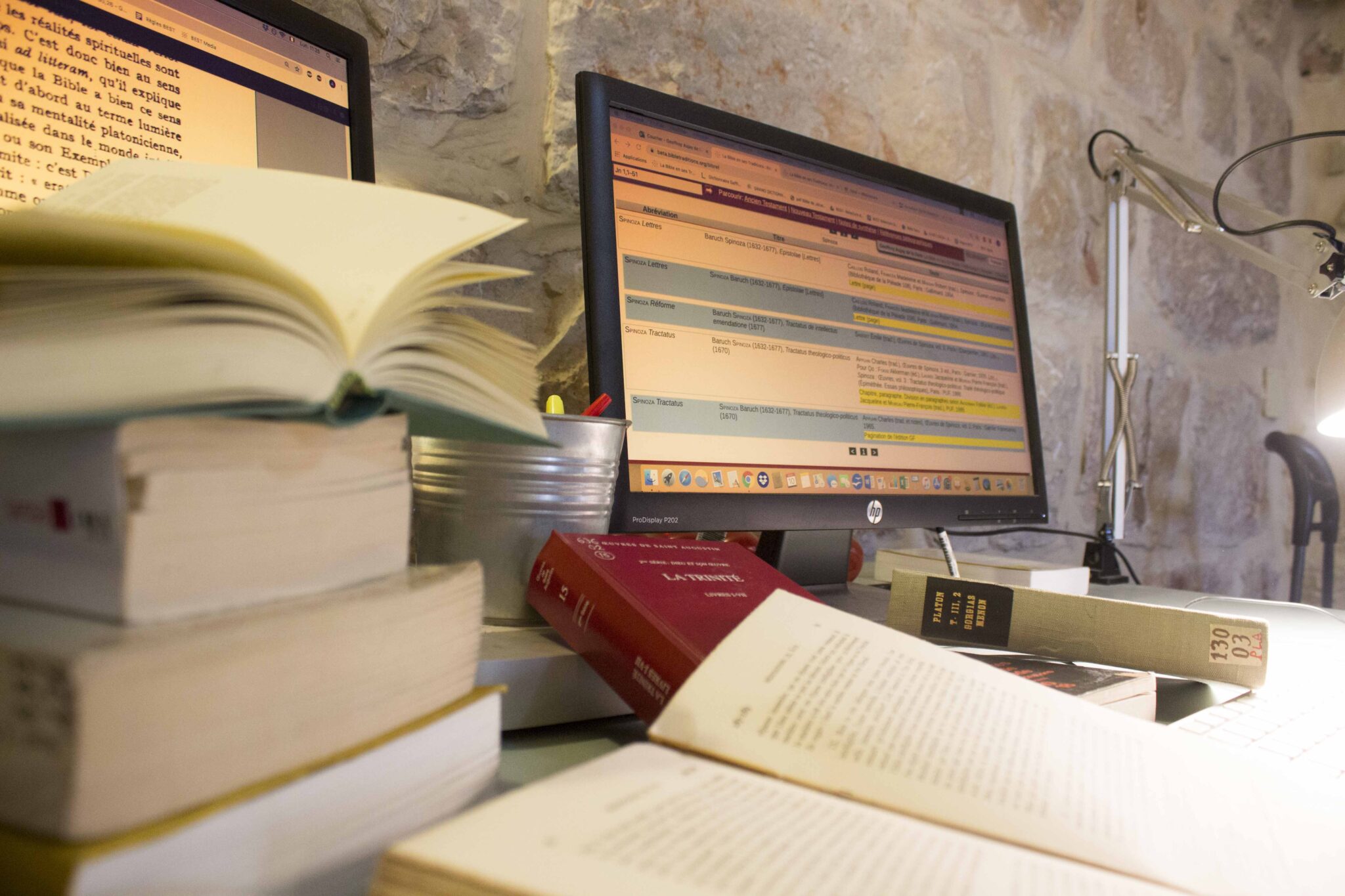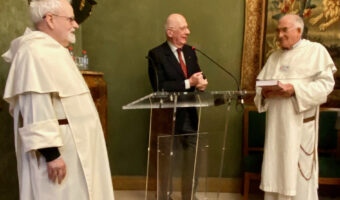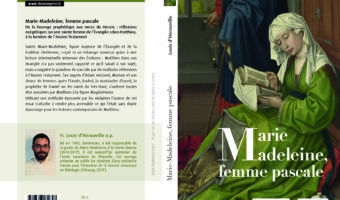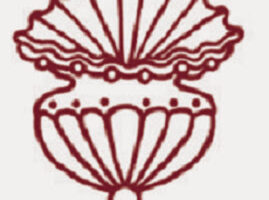Throughout the 2019-2020 academic year, every Thursday from 4-6pm, the main office of The Bible in its Traditions has been transformed into a classroom, before ‘videoconferencing’ takes over. Several members of the ‘Bible and Philosophy’ seminar gather around the big screen in BEST’s main office. Among the regular or exceptional participants, besides professors Avital Wohlman (HUJ), Augustin Tavardon (EBAF), Riccardo Di Giuseppe (ICT), or Xavier Lafontaine, one of the very first assistants of the BEST, this year doctoral fellow of the AIBL, two normaliens and research assistants in International Mobility with us: Pauline Micos, who studies the Platonic corpus in particular, and Geoffroy Aujay de la Dure, who holds a Master 2 in philosophy.
“One of the aims of this seminar is to enrich the annotations of the research programme. Until recently, the exchanges concerned the articulation between chapter 28 of the Gospel according to Saint Matthew, the philosophical positions linked to the Resurrection and the problems linked to this event. We approached this mystery by delving into several themes which are themselves linked to two main axes. Firstly: the miracle. After all, isn’t the Resurrection the greatest of all miracles? Secondly: the testimony. We asked ourselves about the degree of truth that we can attribute to the testimony we receive and, more fundamentally, about the reasons we have for believing in a text – in this case the Word of God. – Geoffroy
From one week to the next, Pauline and Geoffroy were tasked with augmenting the notes studied during the seminar, and collecting material to feed into the discussions at the next session.
“We are committed to showing the differences of opinion and interpretation between the philosophers. It is not about studying only one author as if he or she holds the philosophical truth.” – Pauline
From this comparison of philosophers, whether classical or more contemporary, emerged the debate between researchers, another reason for the seminar.
“During the seminar sessions, everyone is invited to speak. The exchanges that the five of us have allow us to consider avenues of reflection that, alone, we would not have thought of. The fact that we have followed different paths and yet are linked to philosophy is also a major asset. The multidisciplinary nature of the speakers (philosophers, exegetes, linguists, etc.) made it possible to shed light here and there on a specific point during the debates. These extra-philosophical analyses lead us to deepen the discussions by examining a theory in another light. – Pauline
The second semester was a time of revision and augmentation of the notes of La Bible en ses traditions in which references to Michel Henry’s work are included, prepared by Sybille Gérain, assistant in Jerusalem a few years ago, now a doctoral student in philosophy on Michel Henry at the Université Libre de Bruxelles in partnership with the Michel Henry Archives of Louvain.
Based on the work of Andrei Costea (also a young philosopher from the ENS, who was an assistant last year), they proposed annotations for the entire prologue of the Gospel according to Saint John based on the notions used by the evangelist (“world”, “truth”, “light”, “life”…).




